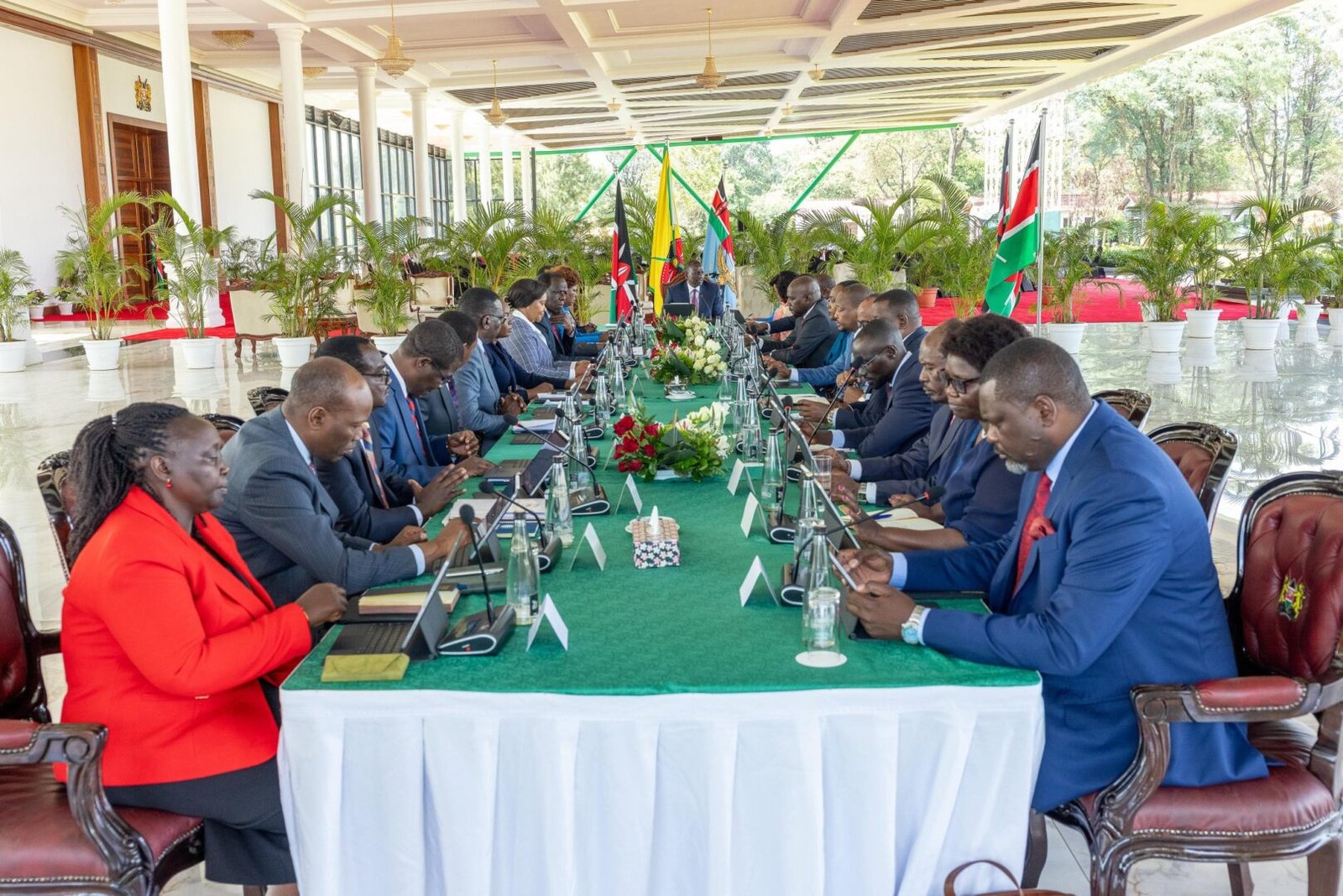NAIROBI, KENYA — The Kenyan Cabinet has given its approval to the Finance Bill, 2025, in a move the government states is designed to strengthen the nation’s fiscal discipline while enacting significant reforms across the tax system.
The Cabinet meeting, presided over by President William Ruto at State House, Nairobi, on Tuesday, marks a crucial step in the administration’s strategy to reduce the national fiscal deficit and operate within its financial capacity.
The proposed legislation, now slated for parliamentary debate, forms part of comprehensive budget adjustments aimed at achieving a reduced fiscal deficit of 4.5% of GDP for the 2025/26 financial year, a decrease from the previous year’s 5.1%.
A Cabinet dispatch released to news outlets indicated that the Bill “focuses primarily on closing loopholes and enhancing efficiency, including addressing loopholes related to tax expenditures that have historically been exploited to siphon funds from public coffers, such as through inflated tax refund claims.”
This suggests that the Bill prioritizes refining the existing tax framework by streamlining refund processes, closing legal ambiguities, and simplifying tax administration through amendments to key legislation including the Income Tax Act, VAT Act, Excise Duty Act, and the Tax Procedures Act, rather than introducing widespread new taxes.
A notable provision within the Bill offers potential relief to Kenya’s small business sector by allowing for the full deduction of the costs of tools and equipment in the year of purchase, a measure considered timely in the current economic climate where cash flow is critical.
Furthermore, in a long-awaited development for retirees, the Bill proposes to exempt all gratuity payments from taxation, regardless of whether they originate from public or private pension schemes, a move likely to be welcomed by Kenya’s senior citizens.
Additionally, employers will now be mandated to automatically apply all Pay As You Earn (PAYE) reliefs, potentially reducing the administrative burden on employees seeking tax refunds from the Kenya Revenue Authority (KRA).
According to the Cabinet, these measures are fundamental components of the Bottom-Up Economic Transformation Agenda (BETA), the current administration’s primary socio-economic development plan.
Beyond the Finance Bill, 2025, the Cabinet also endorsed several other initiatives. These include a Public Finance Management (Amendment) Bill aimed at mandating County Emergency Funds, the Judges Retirement Benefits Bill intended to bolster judicial independence, and significant healthcare infrastructure projects in Bungoma and Kericho counties.
The government also announced its intention to establish a Consulate General in Port-au-Prince, Haiti, signifying Kenya’s expanding diplomatic presence and its leading role in efforts to restore stability to the Caribbean nation.
As the Finance Bill, 2025, progresses to Parliament, it sets the stage for a significant debate, particularly in light of the President Ruto administration’s withdrawal of the Finance Bill, 2024, following widespread youth-led protests that culminated in the invasion of Parliament on June 25, 2024.

